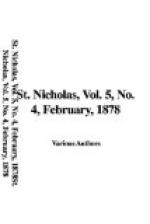[Illustration: The tea hong.]
The boat coolies were straining on the tow-rope a hundred yards ahead. Frequently we passed some fisherman sitting in his little mat hut, with his feet on the windlass that raised his great square net; but never did we see them catch a fish, although on our return the same men were working as assiduously as ever. The country presented the same compact system of farming, the hills in many places being terraced to their very summits, and planted with waving crops of wheat and millet, beans, and vegetables of every description. Toward noon we passed the “Ta” and “Lao Kin Shan” (great and little golden mountain), and by the time Aling had announced “tiffin” (luncheon), we were abreast of Kin Kow, a picturesque village in the neighborhood of which I generally found some excellent shooting. After tiffin we again resumed our camp-stools. I lighted a cigar, and Akong smoked his hubble-bubble, a small copy of the nargileh of the Turks. The river was alive with junks, some going in the same direction as ourselves, and others loaded with tea, charcoal, vegetable tallow, oil of various kinds, and gypsum, brought, most of them, from the far western province of Sze Chuen.
There was but little variety in the journey until the following day, when we approached the great bend in the Yang Tsze, and Akong told us that, if so inclined, we could land from the boat, and by walking six or eight miles across the country join the boat again, the bend rendering it necessary for her to go around some thirty or forty miles. This we gladly assented to, and taking my gun, in hopes of meeting with some snipe in the paddy-fields, and with Aling and a coolie for interpreters, we landed.
Charley and I both experienced a rather queer sensation as we watched the boat sail off, and found ourselves with no other white man within a hundred or more miles. The country ahead was one immense rice-field, divided by dykes or banks paved with stones and forming paths for walking. At some distance we saw a large clump of bamboos with tall elms beyond, indicating a village, called, as a coolie at work in a ditch informed us, Fi-Loong. Soon we saw a broad creek with a handsome stone bridge over it, and on the other side an unusually large house of two stories, which turned out to belong to the Te-poy, or local magistrate of the place. The old gentleman himself was sitting outside of the house having his head shaved by the village barber. He politely invited us to wait, and after the shaving was over regaled us with a cup of tea,—rather weak, but refreshing,—and after chin-chin-ing we resumed our journey.




